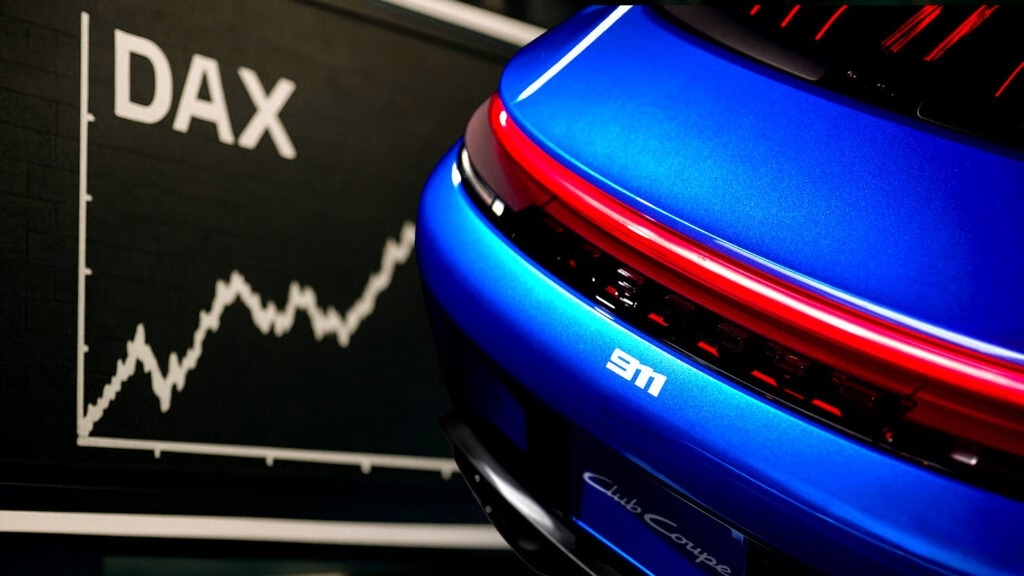Why Did Porsche Get Dropped from Germany’s DAX Index?
If you follow the European stock market, you probably did a double take when you heard Porsche is no longer part of Germany’s DAX index. For decades, the DAX has been the gold standard—home to the 40 most valuable and influential German companies. Porsche, with its legendary sports cars and global brand recognition, seemed like a permanent fixture. So, what happened?
The answer is a cocktail of market forces, shifting investor sentiment, and some tough economic headwinds. The DAX regularly reviews its roster every three months, and this time around, Porsche’s stock performance simply didn’t make the cut. Its shares have dropped a staggering 24% so far this year, and over the past twelve months, they’re down more than 33%. That’s not just a blip. It’s a sign of deeper challenges.
Who’s Taking Porsche’s Place—and Why Does It Matter?
Here’s the twist: Porsche isn’t being replaced by another automotive titan or a tech giant. Instead, its spot goes to Scout24 SE, the company behind ImmoScout24, Germany’s leading online real estate platform. Not exactly a household name outside the property market, but a powerhouse in its own right.
Why does this matter? For one, it signals a shift in what investors and index managers value. Real estate tech is on the rise, while traditional automakers are facing a bumpy road. The move also highlights how quickly fortunes can change in today’s market. Just because a brand is iconic doesn’t mean it’s immune to market realities.
What’s Behind Porsche’s Slumping Stock?
Let’s dig into the numbers. Porsche’s financials for the first half of the year paint a sobering picture. Revenues fell from €19.46 billion to €18.16 billion. That’s a loss of over a billion euros in sales. The bigger shock? Operating profit plunged from €3.06 billion to just €1.01 billion—a drop of nearly two-thirds.
What’s causing the pain? Several factors are at play:
– Tariffs, especially from the US, are biting hard. Porsche has had to swallow around €1.1 billion in special charges, much of it due to these tariffs and strategic realignment.
– Demand in China, one of Porsche’s most important markets, has cooled off. That’s a big deal, considering China’s appetite for luxury vehicles.
– The transition to electric vehicles is moving slower than Porsche (and the broader industry) hoped. Consumers are hesitant, infrastructure is lagging, and competition is fierce.
CEO Oliver Blume has been candid about these challenges, pointing to “macroeconomic and geopolitical headwinds” as major obstacles. He’s also made it clear that Porsche’s exit from the DAX isn’t the end of the story—he wants the company back in the index as soon as possible.
How Does This Affect Porsche’s Future—and Investors?
Being dropped from the DAX isn’t just a blow to Porsche’s ego. It has real-world consequences. The DAX is tracked by countless funds and institutional investors. When a company leaves, those funds often have to sell its shares, putting even more downward pressure on the stock.
But it’s not all doom and gloom. Porsche is moving to the MDAX, which, while less prestigious, is still home to major players like Lufthansa. The company remains one of Germany’s most valuable brands, and its long-term prospects aren’t erased by a single index shuffle.
For investors, though, this is a wake-up call. Even blue-chip stocks can stumble. It’s a reminder to look beyond the badge and dig into the fundamentals—revenue trends, profit margins, and the ability to adapt in a fast-changing world.
What Can Other Automakers Learn from Porsche’s Setback?
Porsche’s stumble is a cautionary tale for the entire automotive sector. The industry is in the midst of a seismic shift—electrification, digitalization, and geopolitical uncertainty are rewriting the rulebook. Companies that can’t pivot quickly risk being left behind.
Take the slow adoption of electric vehicles. While Porsche has made headlines with models like the Taycan, the reality is that consumer uptake hasn’t matched expectations. Meanwhile, tariffs and trade tensions are making global expansion more complicated and expensive.
Other automakers would be wise to keep a close eye on their own balance sheets and market positioning. The lesson? Adapt or risk losing your spot at the table.
What’s Next for Porsche—and Will It Bounce Back?
Porsche isn’t throwing in the towel. The company is doubling down on innovation, pushing forward with its electric vehicle strategy, and looking for ways to reignite demand in key markets like China. CEO Blume’s determination to return to the DAX shows that the brand’s ambitions haven’t dimmed.
Industry analysts are watching closely. According to a recent report from Bloomberg, the global luxury car market is expected to grow at a compound annual rate of 5.4% through 2028. If Porsche can navigate the current turbulence and tap into that growth, a comeback isn’t out of the question.
The big takeaway? Staying at the top isn’t about perfection—it’s about smarter adjustments. Start with one change this week, and you’ll likely spot the difference by month’s end.

